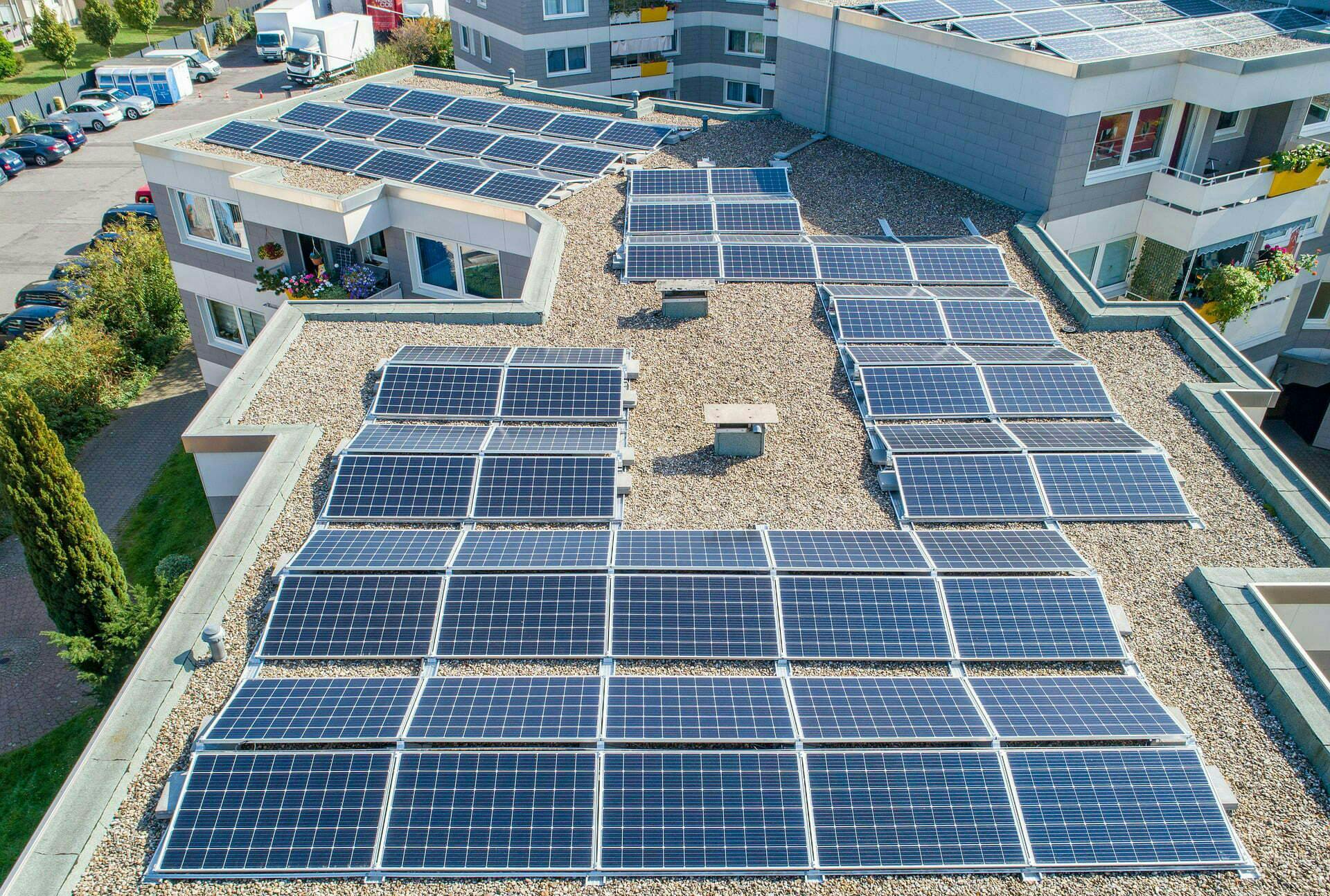R. Dr. Francisco Sá Carneiro
Zona Industrial de Bouro, Letra C
4740-010 Esposende, Portugal

What’s the Best Solar Module for My House?
Solar thermal and solar photovoltaic. These are the two main types of solar energy systems. And make no doubt about it: both are eco-friendly and represent a great tool for you to save energy. But which one would be best for your house? We’ll guide you through the pros and cons of each technology.
First, let’s clarify the differences. Solar thermal technology is used to collect sunlight and transform it to heat your house or to produce domestic hot water. On the other hand, solar photovoltaic equipments basically capture solar radiation and convert it directly into electricity. Simple, right? But you’ll get a better understanding with the advantages and disadvantages of each one.
Let’s start with the solar thermal system. The technology itself is less complex than the photovoltaic equipments. Put simply, the panels installed on your roof collect the sunlight and transport the heat into your cylinder, which would be ready to use. Thus, this is an ideal environmentally friendly solution to heat up water in your home. In fact, solar thermal panels can be up to 70% more efficient when it comes to collecting heat. Moreover, the cost of installation is lower compared to a solar photovoltaic system, while it also takes less time to recover your initial costs. Not less important is the fact that this technology is more space efficient, taking less space on your roof.
Of course, there are also some disadvantages. You now understand that solar thermal is a great option for water heating and, in that note, it’s a less effective system during winter, a season when we might not see sunlight for quite some days or even weeks. And, while it’s not as expensive as the PV technology, it has a shorter lifespan and requires annual maintenance.
Compared to thermal, solar photovoltaic panels are a newer technology. And the pros of using this system are also plenty. Knowing they convert sun rays into electricity, you can guess it: in the summer, they are incredibly efficient. And, no, during winter, they won’t freeze! This technology is able to cover 60% of your household’s needs in terms of energy. This also means it covers the requirements of appliances with high-energy consumption, such as a washing machine or a fridge. Last but not least, the system’s maintenance is minimal and its lifespan is much longer than the thermal panels - solar PV can provide you clean energy for more than 30 years.
On the downside, for obvious reasons, to reach its purpose, solar PV panels are only effective during daylight hours. Not only that. The initial investment is quite high and, consequently, it takes longer for you to recover those costs. These panels also require more space on your rooftop.
So, each technology does have its own purposes and, for that reason, choosing might be hard. The answer relies mostly on your needs. If your heat and/or water bill is high, the solar thermal panels are your best choice. But if you feel like reducing the cost of electricity, the PV system is a better option. With one or the other, one thing is for sure: you will benefit the environment and will be provided with clean and green energy.
Do you have any suggestions or topics about the solar universe you would like to read here? Reach us by email (and go solar)!